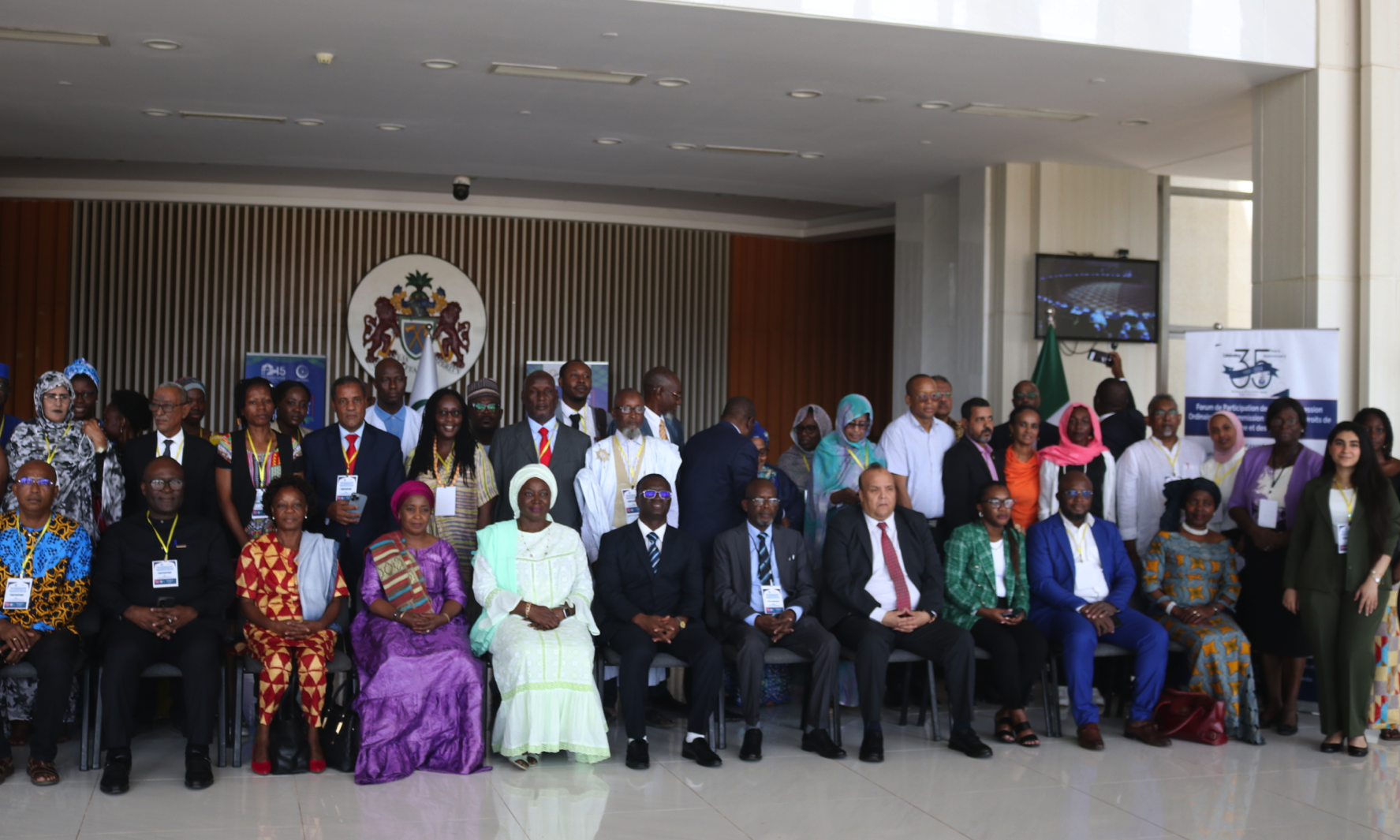© ACDHRS

Outcome of the NGO Forum ahead of ACHPR79
The NGO Forum took place between 11-13 May, in hybrid format in Banjul, The Gambia prior to the 79th ordinary session of the Commission.
The NGO Forum took place between 11-13 May, in hybrid format in Banjul, The Gambia prior to the 79th ordinary session of the Commission.
The 11-13 May 2024 was marked by a robust convening of human rights defenders and civil society organisations discussing the situation of human rights in Africa. The session’s forum was centred around the theme of education, entitled, ‘Educate an African Fit for the 21st century: Building Resilient Education Systems for Increased Access to Inclusive, Lifelong, Quality and Relevant Learning in Africa.’
During this session, a number of panels were organised which allowed discussion on the situation of human rights in Africa, especially in relation to this year’s theme.
The situation of human rights in Africa
There were general concerns on the democratic roll back in Africa. For instance, in The Gambia, where attempts were being made to repeal the legal provisions within the Women’s (Amendment) Act of 2015, which prohibit and criminalise Female Genital Mutilation (FGM). This repeal was met with concerns over the progress that the law has made especially in ensuring that women and girls can access education. In the Sahel, the continuation of modern day slavery was a major cause of concern as it continues to enhance inequalities. This is further enhanced by the existence of a caste system that is dominant in countries such as Mauritania, Mali, Niger and Burkina Faso as noted by Queen Bisseng of the Global Forum of Communities Discriminated on Work and Descent (GFOD).
The resurgence of unconstitutional changes of governments was noted in parts of the continent such as Chad, Sudan and the Democratic Republic of Congo. This trend not only undermines the rule of law but has also been witnessed with the loss of fundamental freedoms such as the freedom of expression. In East and Horn of Africa, there is regression in the democratic space as noted in Ethiopia, where civil society operations are stifled and the civic space is increasingly shrinking, especially the freedom of assembly. Migrants are also facing challenges such as the lack of safety for immigrants across borders who are fleeing violence and conflict as noted by Nimo Ali, of the Candle of Hope Foundation based in Kenya and Somalia.
In Southern Africa, there is a continuous threat to the families of human rights defenders. In Eswatini, the widow of murdered human rights lawyer, Thulani Maseko, Tanele Maseko has been intimidated and harassed by authorities.
Special Interest Groups
On 12 May 2024, special interest groups engaged on thematic issues and discussed the role of education in ensuring that some of the issues are better able to be dealt with. These included the rights of women, gender based violence, immigration, internally displaced persons and refugees, peacebuilding, freedom of assembly and association, and the discrimination on descent.
In their recommendations, they called on the commission to partner with education institutions across the continent to include human rights education as a core part of the curriculum in both basic and advanced education. Furthermore, to launch a peace initiative and toolkit to promote human rights education in universities. For the rights of women, there is a need to address regressive cultural practices that uphold patriarchal standards through popular education and shun traditional practices that harm the lives of women and hinder their education.
